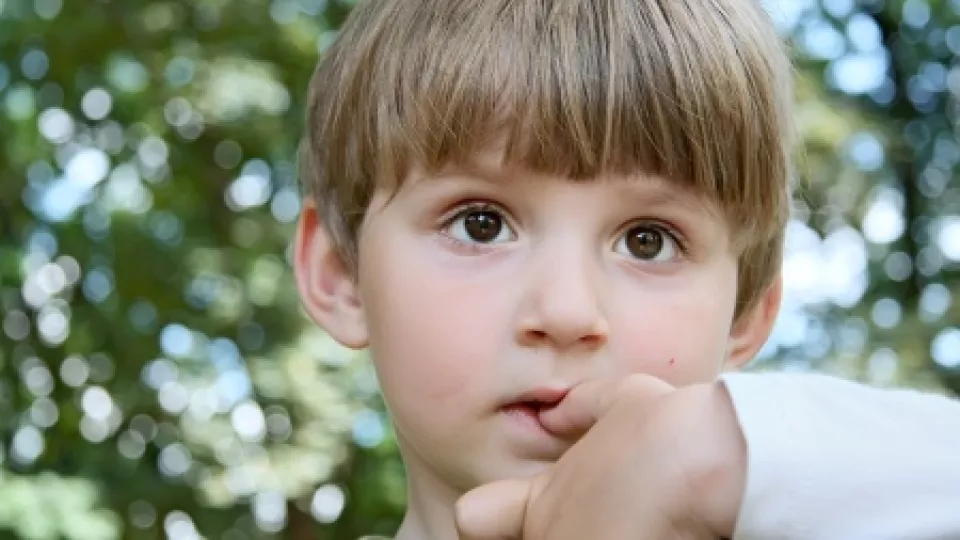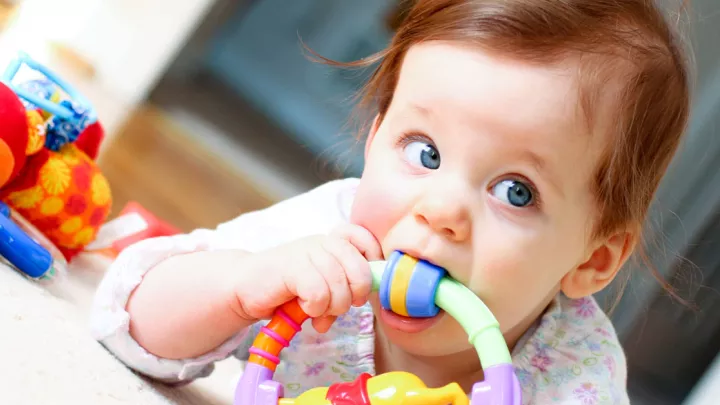
Tips to Help Stop Nail Biting
I can tell you the exact moment my son Alexander became a nail biter. He was 5 years old, watching his mom get dressed for work. I could see at the time Alexander place his finger in his mouth and chew on his nail. He never stopped; it was embarrassing for him, he learned to wrap his fingers all the way around his drinking glass, so that the nails faced his chest. He hated doing homework in public places because he was embarrassed about how his nails looked.
Nail biting (onychophagia) is an oral functional habit, the use of the mouth for a purpose other than speaking, eating or drinking, a category that includes grinding teeth, digit sucking, pencil chewing and mouth breathing. Nail biting begins during childhood, increases substantially during adolescence, and declines with age, although the habit may continue into adulthood. The considerable increase in nail biting in teens may be explained by the difficulty of transitional phases in a teen’s life, and the feeling of instability associated with those phases.
Nail biting can sometimes affect individuals who are psychologically stable, but it is usually a sign of loss of control over difficult tasks. The principal psychological factors found to be associated with this behavior are:
- Stress
- Nervousness
- Anxiety
- Depressed mood
In fact, nail biting has been shown to be a coping mechanism in stressful conditions, and patients whose nail biting may be described as an addiction may experience more distress when trying to refrain from it. On the other hand, a lack of stimulation (low activity, boredom) may also set off or exacerbate nail biting. Hunger and low self-esteem are also known to be possible triggers.
Reasons to Stop
Nail biting won’t typically cause permanent damage, but it definitely has its downsides.
- It can make your nails grow in abnormally. If you damage the tissue around your nails, they may stop growing the way they should.
- It can also spoil your smile. You can chip, crack or break your teeth when you bite your nails.
- Over time, nail biting can even cause jaw problems.
- It can make you sick because hands are a hotbed for germs, and nails are their perfect hideout. When you’re putting your fingers in your mouth multiple times a day, it increases your chances of getting sick. Plus, the skin eruptions you can cause when you bite your nails creates an easy way for germs to get in.
Tips to Help You Stop Nail Biting
- Place something over your hands or fingers. Remember that most nail biting is unconscious, so chances are you’re not even aware that you’re doing it. Placing something over your fingers, like a bandage, will help “wake you up” to your habit and cause you to stop.
- Replace the habit with something more productive. Sometimes your hands simply need something to fidget with. If you look around, you can find fidgeting tools like a fidget spinner and try to train yourself to use it instead, since they cause no damage and are harmless.
- Have people point it out to you. One of the ways to treat nail biting is to make the unconscious conscious. Have the people in your life who are around you often to point out to you whenever it looks like you’re biting your nails. This reminder can make you more mindful of it so that you can’t stop it before it even starts.
- Give yourself set reminders. If you found that you bite your nails at specific times of day or specific places, you can set up alarms to remind you not to bite. If you’re in the middle of biting you’ll realize it and find some way to move your hands away.
- Keep your hands or mouth busy. If you find you bite them when alone on the couch, try to spend more time with friends and walk around rather than sit on the couch. When you’re stressed and alone, do things like putting together a puzzle so your hands stay busy. You can also chew gum or enjoy hard candies. Stay active so that you don’t even have a free moment to bite.
These techniques are all temporary means of helping people learn to resist the urge to bite their nails. The more the urge is resisted, the weaker the urge becomes over time. Pay attention to where you are and what you’re doing when you bite your nails. Once the urge fades, these techniques become less necessary. The length of time it takes to extinguish the behavior depends on how long the person has had the problem and how diligent the person is in resisting it. Although therapy typically lasts from 10 to 12 weeks, it can take up to 12 months for the urge to bite to finally fade away.


